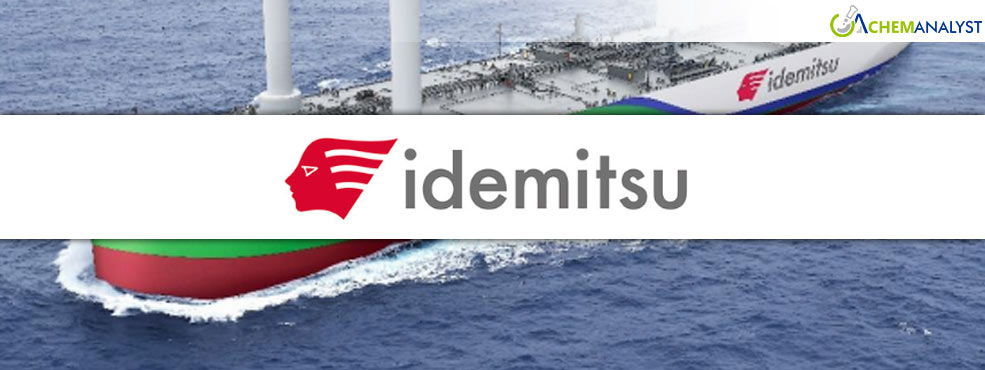Welcome To ChemAnalyst

Idemitsu Kosan Co., Ltd. and its group company, Idemitsu Tanker Co., Ltd., today announced their decision to construct two cutting-edge, environmentally friendly Very Large Crude Oil Carriers (VLCCs). Scheduled for completion in 2028 and 2029, these dual-fuel vessels will be capable of operating on both methanol and heavy oil.
Overview of the two environmentally friendly VLCCs:
• Overall length: Maximum 339.5m
• Breadth: 60.0m
• Depth: 28.6m
• Full load draft: 21.0m
• Full load deadweight: Approximately 309,400 tons
• Fuel: Methanol and heavy oil
• Other: Equipped with a large shaft generator and two "rotor sails" wind propulsion auxiliary devices
These next-generation VLCCs will be operated collaboratively by Idemitsu Tanker and Iijima and incorporate an advanced design concept developed by a consortium comprising Idemitsu Tanker, Iino Kaiun Co Ltd, Nippon Yusen Kabushiki Kaisha, and Nippon Shipyard Co Ltd.
Beyond their dual-fuel capabilities, the vessels will feature state-of-the-art technologies to further minimize their environmental footprint. Notably, they will be equipped with a large shaft generator, which harnesses the rotational energy of the main engine's propeller shaft to generate electricity. This reduces the reliance on onboard generators, leading to lower fuel consumption and consequently, decreased CO2 emissions.
In a global first for a VLCC, these ships will also be fitted with two "rotor sails", innovative wind-powered propulsion auxiliary devices. These sails will harness wind energy to assist the main engine, further reducing fuel consumption and greenhouse gas emissions. By leveraging wind power, the vessels will experience reduced engine load and improved overall energy efficiency.
This combination is projected to achieve a remarkable reduction of over 40% in CO2 emissions compared to the baseline required by the International Maritime Organization's "EEDI (Energy Efficiency Design Index) Phase 3" regulations for ships contracted from 2025 onwards. This significantly surpasses the mandated 30% reduction, positioning Idemitsu Kosan and Idemitsu Tanker as leaders in sustainable shipping practices.
Methanol, while a fundamental chemical compound, is gaining increasing recognition as a potent energy source for mitigating CO2 emissions in the maritime sector. Compared to conventional heavy oil, the use of methanol can slash nitrogen oxide (NOx) emissions by up to approximately 80%, sulfur oxide (SOx) emissions by up to around 99%, and carbon dioxide (CO2) emissions by about 15%. Furthermore, the potential use of green methanol, such as biomethanol derived from biomass and e-methanol produced from renewable hydrogen and captured CO2, offers a pathway to even greater CO2 emission reductions in the future.
We use cookies to deliver the best possible experience on our website. To learn more, visit our Privacy Policy. By continuing to use this site or by closing this box, you consent to our use of cookies. More info.
